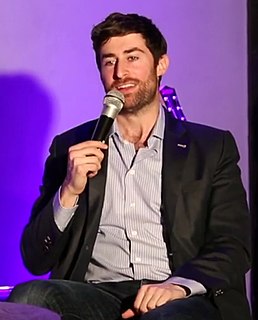A Quote by Daniel Lyons
Carrier networks were originally built for connecting phone calls. Now they're getting swamped with bandwidth-hogging data applications. Keeping up will require huge investments. Who's going to pay for that?
Related Quotes
When I was a kid, phone calls were a premium commodity; only the very coolest kids had a phone line of their own, and long-distance phone calls were made after eleven, when the rates went down, unless you were flamboyant with your spending. Then phone calls became as cheap as dirt and as constant as rain, and I was on the phone all the time.
Every day, I absorb countless data bits through emails, phone calls, and articles; process the data; and transmit back new bits through more emails, phone calls, and articles. I don't really know where I fit into the great scheme of things and how my bits of data connect with the bits produced by billions of other humans and computers.
Everything we can think of that should have a processor, and they'll all be connected. People talk about fridges re-ordering when you run out of milk, but it's going to be much bigger than that. The transition to this world will require a huge number of applications to be developed, and that's a huge opportunity for Infosys.
I felt lost in endless spools of social media. All the while, emails by the thousands were piling up, phone calls were getting lost in the mix, and messages from the most important people in my life were getting drowned out in the din. I was more responsive to comments on Instagram than to my own closest friends and family.
[A comic book writers' union] will never happen. Someone will always be willing to write Batman for free. ... You sit at a bar with an editor at a show and you see 19 people come up and pitch ideas at them. If everybody writing the top 20 books all quit and demanded, 'Union now, union forever,' those 19 guys would be getting phone calls. There will never be a union. I think things are getting better - I bet things have never been so good - but there will never be a union.
The Chinese central government will slowly and steadily lose authority while regional armies [gain power]. The Western powers are going to take sides to protect their investments - they have put billions of dollars into Shanghai. Their fear is that [these investments] are going to be expropriated by a warlord from the interior who will sweep down on Shanghai. They will try to form alliances with warlords to protect their concessions, and there will be a huge flow of weapons into China.
The early entrants into the world of A.R., as with its cousin virtual reality, were disappointing: the phones were too weak, the networks were too slow, and the applications were too nerdy. But now the technological pieces are in place, and a whole generation - much of which is on Snapchat - has come to consider the camera almost a third arm.






































